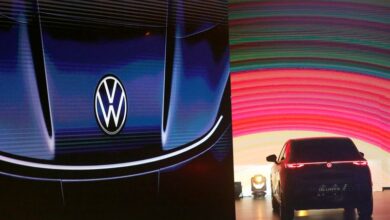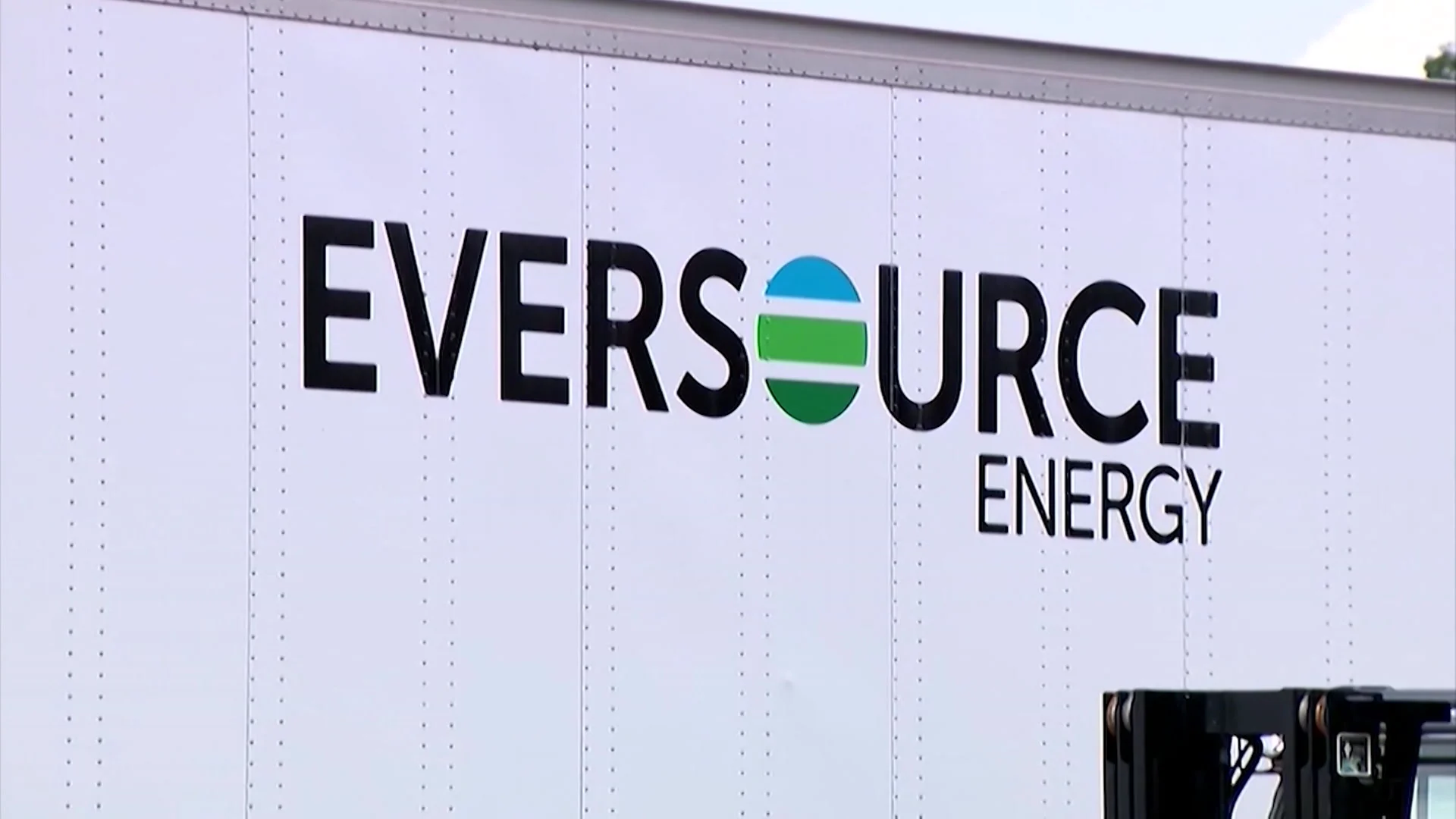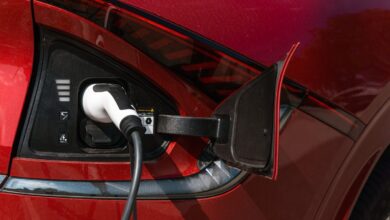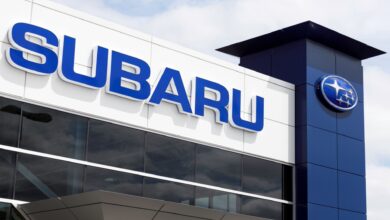Tesla Registrations Continue Falling But That Won’t Stop It Dominating EV Sales
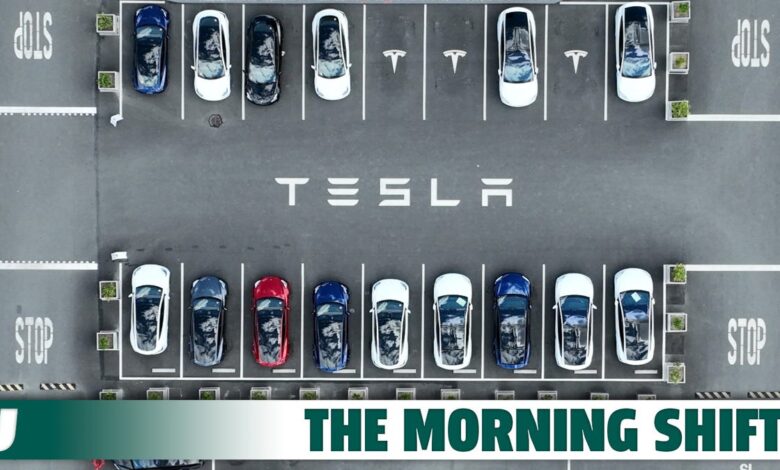
Good morning! It’s Friday, May 17, 2024, and this is The Morning Shift, your daily roundup of the top automotive headlines from around the world, in one place. Here are the important stories you need to know.
1st Gear: Tesla Sales Drop Another 12 Percent
Tesla might have had a little win yesterday when it emerged that the Cybertruck was officially the second-best-selling electric pickup truck in America, but it isn’t quite out of the woods just yet. After reporting a massive 25 percent drop in new car registrations in February, the declines are continuing for the electric vehicle maker.
In March, Tesla reported that new car registrations were down a further 12 percent compared with the same period last year, reports Automotive News. In total, more than 50,000 new Tesla cars were registered in March here in America. As Automotive News explains:
Tesla had a 12 percent decline in March registrations compared with the same month last year to 50,474, the data showed. In February, Tesla suffered a 25 percent drop compared with the year-earlier month.
“There’s a lot of other brands we knew were coming [with EVs] and they’re here and they’re competitive” said Tom Libby, associate director of industry analysis at S&P Global Mobility. “When Tesla had 80 percent of the EV market, the standard thinking was that it couldn’t last.”
Tesla’s share of the EV segment fell to 52.4 percent in March from 61.5 percent in the year-earlier month, S&P Global Mobility said. Tesla accounted for 80 percent of electric vehicles sold in the U.S. in the 2020 calendar year.
That 52.4 percent share of the market does, of course, mean that the declines at Tesla aren’t enough to take away its title as best-selling EV maker in America. In fact, the company is so far ahead that there’s hardly any contest, really.
While Tesla was out selling 50,000 new EVs, ford was struggling to hit 10,000 EVs sold in second place. Behind it was Hyundai, which shifted 5,686 electric cars in March and BMW sold 4,246 electric models.
2nd Gear: China Clears The Way For Tesla Self-Driving Rollout
Here in the U.S., the rollout of Tesla’s advanced driver assist features, Autopilot and Full Self-Driving, has been fraught with issues. There’s been deadly crashes, videos showing cars equipped with the tech turning into traffic and even the admission from most users that they wouldn’t pay for the feature. But that won’t stop boss Elon Musk rolling the features out in new markets, and it now sounds like China could be next.
Musk was reportedly in China earlier this year to try and set up the expansion of Autopilot into the market, but faced a few data protection hurdles before his plan could be set into motion. Now, Reuters reports that lawmakers in Shanghai have begun clearing the way for Autopilot and FSD to roll into China.
Currently, secure data collected in China can’t be shared outside the country, which has been a sticking point for Tesla which wants access to any FSD information it collects. However, lawmakers have drawn up a pilot program that will allow certain companies to share some “important” data overseas. As Reuters explains:
The government of Shanghai, China’s market and business capital, has compiled a first batch of “ordinary data” in three sectors – intelligent and connected vehicles, mutual funds and biomedicine. These require the least regulation for data transfers, the government document says.
Under a one-year pilot project, companies registered in the city’s free-trade Lingang Area, where Tesla’s Shanghai factory is located, may transfer data on the list overseas without needing further security assessments, according to the document,which was shared with companies attending an event announcing the white list in Shanghai.
Once the trial period goes into effect, Tesla will be able to share research and development data collected in China overseas to its teams in America. There, it can use it to fine-tune and train the FSD and Autopilot systems.
3rd Gear: Stellantis Joint Venture Will Sell China-Made EVs
While we’re talking about China, let’s check in with Jeep owner Stellantis, which reportedly has plans to start offering Chinese-made EVs as part of a new joint venture it has in the works, according to the Detroit Free Press.
The Alfa Romeo owner has plans to begin offering affordable, Chinese-made electric models in nine European countries, as well as select international markets including India and Australia. The move is part of a new deal between Stellantis and EV startup Leapmotor. As the Free Press explains:
Stellantis CEO Carlos Tavares explained in a follow-up discussion that the fact that no Chinese EVs are being sold in the United States influenced strategy, but he also noted the impact of tariffs. The Biden administration on Tuesday announced substantial new tariffs on EVs and other products from China.
“There is no real Chinese competition right now in the U.S. market,” he said, noting that Europe is a different case. “It looks like the U.S. is going for a very strong protectionism whereas for the time being Europe is keeping the market reasonably open with a lower tariff of 10%.”
The cars will initially be sold in countries such as the Netherlands and Germany, and a decision on bringing them over to America will all depend on tariffs, reports the Free Press. This week, the Biden administration strapped a 100 percent tariff on EVs made in China and hiked tariffs on other products, affecting more than $18 billion-worth of Chinese goods.
4th Gear: Toyota’s Mexico Plant Has A Worker Shortage
After shutting production lines at its facilities in Japan last year, it’s now emerged that stoppages have taken place at Toyota’s Mexico plants as well. However, rather than being as a result of computer problems, the Mexico stoppages are as a result of a worker shortage.
Toyota plants in Tijuana, Mexico, stopped work for 19 days between February and March, reports Reuters. The stoppage came after local labor shortages affected output and essential parts suppliers. As Reuters explains:
Toyota halted production for a total 19 days in February and March at its plant in Tijuana, Mexico, where it makes the Tacoma pick-up truck, according to two of the people. Technical issues at the plant were also a factor in the stoppage, they said.
Reuters spoke to four people at suppliers and Toyota. All of them declined to be identified because the information has not been made public.
Toyota is now working with some suppliers to ease the strain. Still, some parts makers are barely managing to keep production going because of the worker shortage, one of the people said.
At its plants in Mexico, Toyota assembles models like the Tacoma for the U.S. market. So far, the company has not commented on what the slowdown will mean for Tacoma orders here in America.
Neutral: Heading To The Races?
I’ve been looking through my summer plans this week and there’s a distinct lack of racing scheduled so far, are you in the same boat or have you already got tickets to all the hottest races? If so, where are you heading and what are you most excited about seeing?
On The Radio: Alexandra Savior – “Mirage”
